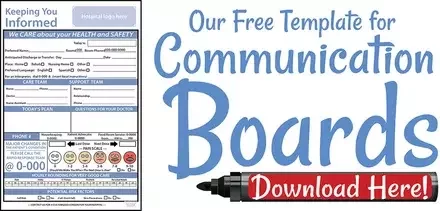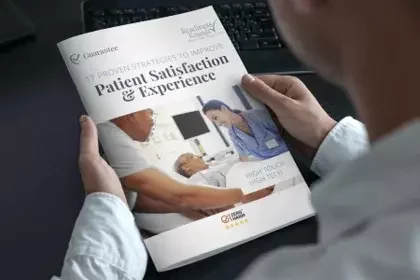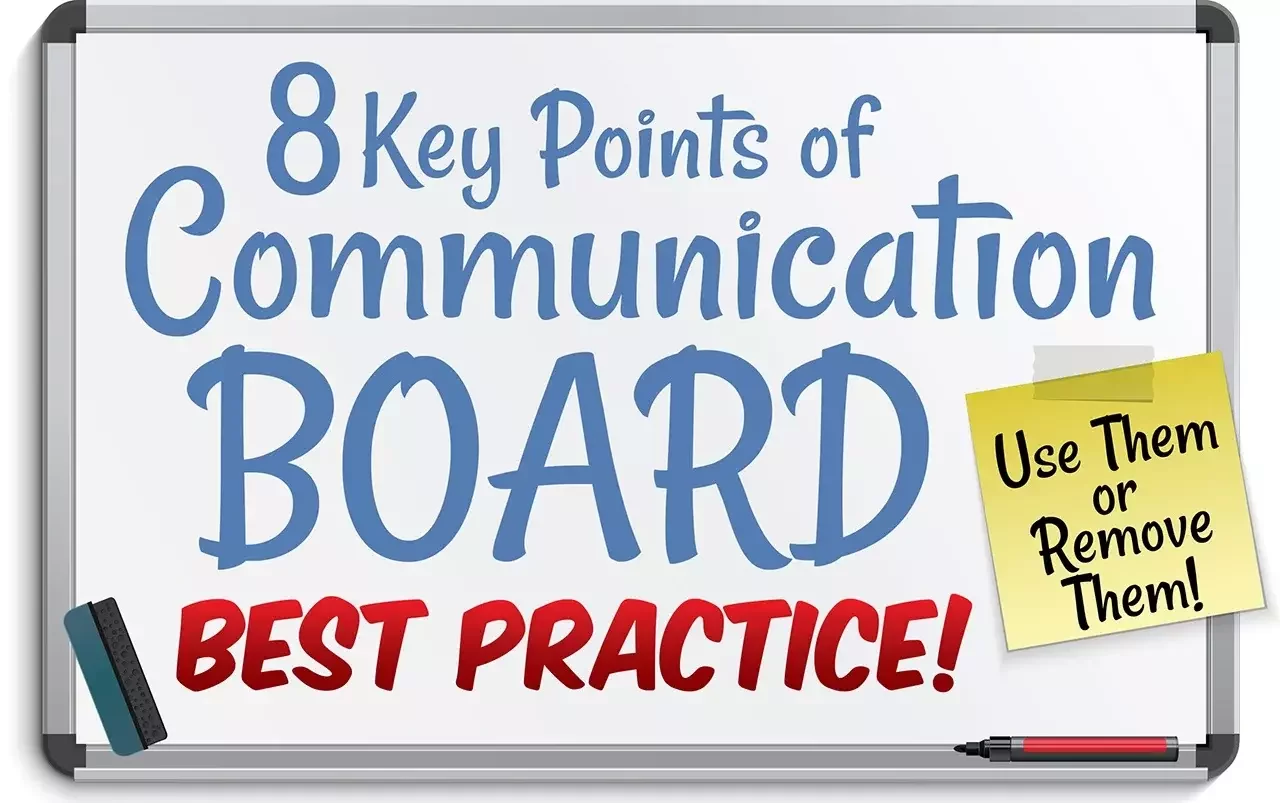
Do you have reservations about the effectiveness of your patient communication boards? Have you ever wondered whether communication boards actually improve the patient experience?
Imagine your hospital using communication boards 100% every day. They can be a significant factor in improving patient satisfaction.
A lot has been written about, and trialed, using patient communication boards. In most hospitals, they are poorly managed. As far as a patient satisfaction strategy, poorly kept communication boards are damaging results more than they are helping.
LOUD AND CLEAR
Patient communication board designs are often too cluttered and unintentionally designed in a manner that practically guarantees the process will fail. The execution ends up being dreadful. A poorly managed communication board sends a very clear message to the patient, family, and friends; an incomplete board

gives the impression that you don’t care much about communicating with your patients and their support team. In the minds of your patients, this will create significant reservation about your overall approach to care.

1. Readable
Some boards are so cluttered they are simply not readable. the word readability with a magnifying glass over topConsider what is on the board. Is it of value to the patient, family, and friends? Is it of value to the hospital care team, nurses, physicians, therapists, and support staff? The board should be ideally placed in the direct line of sight of the patient.
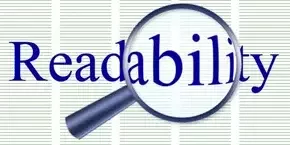
2. Replaceable
Things will change (the first law of the universe). example of a hospital communication boardDon’t assume after countless meetings, you will agree on a perfect communication board template. Ensure you design a board that is an insert that can be updated overnight. This also allows for the customization of boards for specialty units.
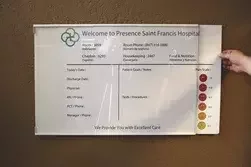
3. Markers
Ensure that dry erase marker pens are affixed to the board. vector image of a white board with a maker eraser penAs a patient, I have seen staff with good intentions bypass the communication board simply because the pen was not available!

4. Appointments List
A list of appointments is a constant moving target. It is unlikely you will keep the appt communication boards patient satisfactionlist up-to-date. Or, it will remain blank, which will cause frustrations. There is huge value in making the appointments list work; consider adding once you have all other aspects of your communication boards working.
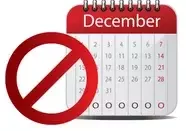
5. Hourly Rounding
A communication board must track hourly rounding. (In some cases, every two hours during the night.) This activity is very difficult to conduct consistently. The upside is that when a communication board is presented well, your patient, family, and friends feel comfortable knowing that the patient is being checked on regularly. On the other hand, if this is not done, they will be complaining that you don’t care. Remember, there is not much to look at in a patient’s room (that’s why ceiling tiles are important), so your patients will know if you use the board or
not. vector image of a clipboard and a clock
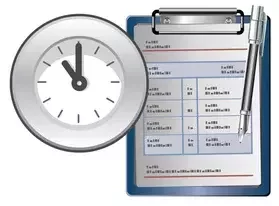
They may not comment if you don’t use it, but this will add to their perceptions of their hospital experience. Don’t try and document hourly rounding anywhere else than on the communication board. This is time-consuming, and must not become an unnecessary effort. A check mark on the board, and the task is done.
During daily patient care rounding, patients must be askedpatient feedback communication boards patient satisfaction about their communication board as a standard question. Some patients will say that it is satisfactory even when it has not been completed. (See an upcoming blog featuring the philosophy of, “Don’t Stop at Yes”).

7. Independent Observation
While making daily inpatient rounds, you should include an indepenicon of a doctor with no face and a magnifying glassdent assessment of the effectiveness of the communication board in your check. You will be surprised at how much lower the observation scores are compared to patient feedback. This is simply another indicator of how difficult it is to get accurate feedback from patients while they are inpatients.

8. Updated Early A.M.
Ensure you build into the nursing team, the task of updating the entire board first thing each morning. This should not be done at 10 icons of a rooster and an alarm clocka.m., but early. Out-of-date information indicates to your patient that you are not paying attention and affects their perception of their care. For example, Thursday CANNOT be on the board when it is Friday.
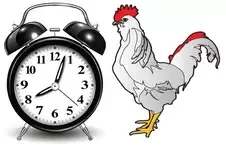
The Communication Boards video: The newest video in the 9 Approaches to Improving Patient Satisfaction series. WATCH BELOW:
The 6 Key Don'ts of Patient Communication Boards

For many of the DON’TS, there is a case for including them on the patient communication board. In most cases though, the probability that you will be able to keep it current is very low. Ensure you have a VERY strong basic approach and a fixed nursing routine before attempting to expand the process.
1. Care team
Don’t increase the number of positions shown for the care team on the board to more than a nurse, a doctor, and a nursing assistant. It would be great if you included the respiratory therapist and social worker. However, what is the likelihood that you will ever keep the additional members of the team on the communication board up-to-date on a daily basis, particularly early in the morning? Not high.
2. Ambulation/turning wheel
Ambulation and a turning wheel is great if you use it and keep it up-to-date. But what is the probability of this actually happening?
3. Patient goals
Again, a 'patient goals' section is great if you can complete it every day. Example question: "What is the most important thing we can do for you today?" This is very hard to keep up-to-date daily. Because, once it is on the board, you have to do it.
4. Hand Hygiene
Some boards and wall posters read, “Make sure we wash our hands.” REALLY?! The message to your patient is that it’s their job to make sure you do your job properly and behave safely. Is it important? Certainly. Is it the patients’ responsibility? Certainly not!!!
5. Patient ID
Some communication boards and wall posters read, “Make sure we ask your name and date of birth.” REALLY?! Is it important? Certainly. Is it the patients’ responsibility? Certainly not!!!
6. Appointment Lists
It is tempting to include today’s appointments on communication boards. If you are confident that nursing staff can keep them accurate at all times, then it is a benefit. Appointments tend to change often from initial schedule. If you have appointments on the board, but are not accurate, you are hurting the perception of care more than helping. Be thoughtful.
Conclusion
There are many studies that confirm the value of the effective use of communication boards to improve patient-staff communication. Even ignoring the studies, the value is obvious. This value is proven.
Remember:

